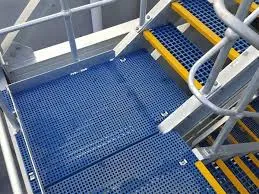
-
 Afrikaans
Afrikaans -
 Albanian
Albanian -
 Amharic
Amharic -
 Arabic
Arabic -
 Armenian
Armenian -
 Azerbaijani
Azerbaijani -
 Basque
Basque -
 Belarusian
Belarusian -
 Bengali
Bengali -
 Bosnian
Bosnian -
 Bulgarian
Bulgarian -
 Catalan
Catalan -
 Cebuano
Cebuano -
 China
China -
 China (Taiwan)
China (Taiwan) -
 Corsican
Corsican -
 Croatian
Croatian -
 Czech
Czech -
 Danish
Danish -
 Dutch
Dutch -
 English
English -
 Esperanto
Esperanto -
 Estonian
Estonian -
 Finnish
Finnish -
 French
French -
 Frisian
Frisian -
 Galician
Galician -
 Georgian
Georgian -
 German
German -
 Greek
Greek -
 Gujarati
Gujarati -
 Haitian Creole
Haitian Creole -
 hausa
hausa -
 hawaiian
hawaiian -
 Hebrew
Hebrew -
 Hindi
Hindi -
 Miao
Miao -
 Hungarian
Hungarian -
 Icelandic
Icelandic -
 igbo
igbo -
 Indonesian
Indonesian -
 irish
irish -
 Italian
Italian -
 Japanese
Japanese -
 Javanese
Javanese -
 Kannada
Kannada -
 kazakh
kazakh -
 Khmer
Khmer -
 Rwandese
Rwandese -
 Korean
Korean -
 Kurdish
Kurdish -
 Kyrgyz
Kyrgyz -
 Lao
Lao -
 Latin
Latin -
 Latvian
Latvian -
 Lithuanian
Lithuanian -
 Luxembourgish
Luxembourgish -
 Macedonian
Macedonian -
 Malgashi
Malgashi -
 Malay
Malay -
 Malayalam
Malayalam -
 Maltese
Maltese -
 Maori
Maori -
 Marathi
Marathi -
 Mongolian
Mongolian -
 Myanmar
Myanmar -
 Nepali
Nepali -
 Norwegian
Norwegian -
 Norwegian
Norwegian -
 Occitan
Occitan -
 Pashto
Pashto -
 Persian
Persian -
 Polish
Polish -
 Portuguese
Portuguese -
 Punjabi
Punjabi -
 Romanian
Romanian -
 Russian
Russian -
 Samoan
Samoan -
 Scottish Gaelic
Scottish Gaelic -
 Serbian
Serbian -
 Sesotho
Sesotho -
 Shona
Shona -
 Sindhi
Sindhi -
 Sinhala
Sinhala -
 Slovak
Slovak -
 Slovenian
Slovenian -
 Somali
Somali -
 Spanish
Spanish -
 Sundanese
Sundanese -
 Swahili
Swahili -
 Swedish
Swedish -
 Tagalog
Tagalog -
 Tajik
Tajik -
 Tamil
Tamil -
 Tatar
Tatar -
 Telugu
Telugu -
 Thai
Thai -
 Turkish
Turkish -
 Turkmen
Turkmen -
 Ukrainian
Ukrainian -
 Urdu
Urdu -
 Uighur
Uighur -
 Uzbek
Uzbek -
 Vietnamese
Vietnamese -
 Welsh
Welsh -
 Bantu
Bantu -
 Yiddish
Yiddish -
 Yoruba
Yoruba -
 Zulu
Zulu
FRP Water Storage Solutions for Enhanced Durability and Efficiency
The Future of Water Storage Exploring FRP Water Tanks
In today's rapidly evolving world, the demand for efficient and sustainable water storage solutions is more pressing than ever. With increasing population growth, industrial activities, and a changing climate, the need for reliable water management systems has become crucial. One of the most innovative solutions emerging in this field is the use of Fiberglass Reinforced Plastic (FRP) water tanks. These tanks offer numerous advantages that align with modern needs, making them a popular choice for both residential and industrial applications.
The Future of Water Storage Exploring FRP Water Tanks
One of the standout features of FRP water tanks is their ability to maintain water quality. Traditional storage systems can often lead to issues with algae growth, rust, and contamination from the material itself. However, the smooth inner surface of FRP tanks discourages the growth of bacteria and other harmful microorganisms. Moreover, since FRP is non-toxic and does not leach harmful substances into the water, it is an ideal choice for drinking water storage. This quality makes FRP tanks an increasingly favored option for municipalities and industries where water purity is paramount.
frp water tank

Another significant advantage of FRP water tanks is their versatility. They can be manufactured in various shapes and sizes, making them suitable for a wide range of applications, from small residential properties to large industrial sites. The lightweight nature of FRP allows for easier transportation and installation, reducing labor costs and project timelines. Unlike heavy concrete tanks that require extensive foundations, FRP tanks can be placed on a variety of surfaces, making them a flexible choice for various environments.
In addition to their practical benefits, FRP water tanks are also environmentally friendly. The production process for FRP materials generally involves less energy consumption compared to traditional materials, resulting in a lower carbon footprint. Furthermore, the durability of FRP tanks means they are less likely to require replacement, contributing to waste reduction. As society continues to emphasize sustainability, FRP water tanks present a responsible choice for water storage that aligns with ecological ideals.
Cost-effectiveness is another factor driving the popularity of FRP water tanks. Although the initial investment may be higher than some traditional options, the long-term savings associated with maintenance, longevity, and water quality make them an economically sound choice. Many companies and municipalities are recognizing the benefits of investing in FRP technology as they seek effective solutions to manage water resources efficiently.
In conclusion, FRP water tanks represent a significant advancement in water storage technology. Their remarkable strength, durability, and resistance to corrosion, combined with the ability to maintain water quality, make them an excellent choice for a variety of applications. The versatility and eco-friendliness of FRP tanks further enhance their appeal, making them an ideal solution for both residential and industrial water storage needs. As we continue to face challenges related to water management, innovations like FRP water tanks will play a vital role in creating efficient and sustainable systems for the future.
Latest news
-
Exploring the Benefits of Top Hammer Drifter Rods for Enhanced Drilling PerformanceNewsJun.10,2025
-
High-Precision Fiberglass Winding Machine for GRP/FRP Pipe Production – Reliable & Efficient SolutionsNewsJun.10,2025
-
FRP Pipes & Fittings for Shipbuilding - Corrosion-Resistant & LightweightNewsJun.09,2025
-
Premium FRP Flooring Solutions Durable & Slip-ResistantNewsJun.09,2025
-
Premium Fiberglass Rectangular Tanks Durable & Lightweight SolutionNewsJun.09,2025
-
Tapered Drill String Design Guide Durable Performance & UsesNewsJun.09,2025









